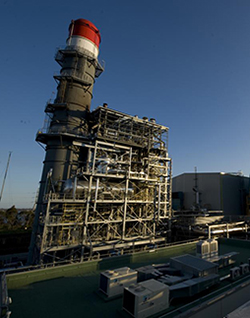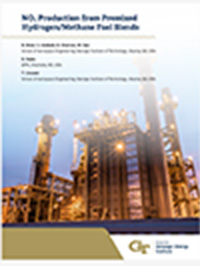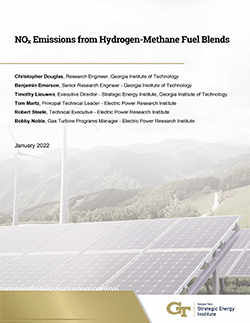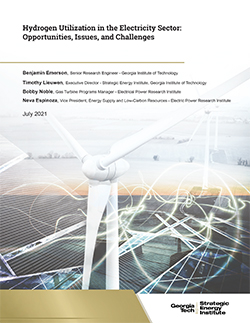Hydrogen Combustion Publications
NOx Production from Premixed Hydrogen / Methane Fuel Blends
Hydrogen (H2) fuel is a promising means for long duration energy storage and dispatchable utilization of intermittent renewable power, which can be combusted without CO2 emissions. However, combustion of any fuel in air can still lead to NOX production. This whitepaper summarizes recent analyses of NO emissions of premixed H2/CH4 blends, demonstrating how fundamental drivers of NOX production change with hydrogen addition. Three major findings are presented: (1) At constant temperature, NO emissions decrease with the addition of H2 for typical gas turbine conditions; (2) Although NOX emissions are typically quoted as parts per million (ppm), it is not appropriate to use ppm as a comparison between different hydrogen blended compositions; one must use mass based comparisons (e.g., ng/J or lbm/MMBTU); (3) atmospheric pressure fuel sensitivity NOX studies will not capture the controlling NO production physics that are present in practical applications, such as gas turbines.
Read the Whitepaper
NOx Emissions from Hydrogen Methane Fuel Blends
How will shifting from natural gas to hydrogen affect air quality? Recently, there have been concerns that hydrogen could make air quality worse by increasing NOx emissions. This whitepaper, a collaboration between Georgia Tech and the Electric Power Research Institute (EPRI), shows that many studies could be interpreting their NOx emissions incorrectly by as much as 40% against high-hydrogen systems.
Read the Whitepaper
Hydrogen Utilization in the Electricity Sector: Opportunities, Issues, and Challenges
This whitepaper is a collaboration between researchers from Georgia Tech and the Electric Power Research Institute. It considers where hydrogen might fit within the energy system as it stands today. The US energy system can be divided into three major subsystems: (A) energy sources (natural gas, oil, solar, etc.), (B) carriers and infrastructures for moving energy sources around, and (C) energy consumers. This whitepaper considers issues associated with hydrogen as an energy carrier, particularly its role as a substitute for natural gas.
Read the Report
 Hydrogen Substitution for Natural Gas in Turbines: Opportunities, Issues, and Challenges
Hydrogen Substitution for Natural Gas in Turbines: Opportunities, Issues, and Challenges
This article in the trade publication Power Engineering, is a collaboration between researchers from Georgia Tech and the Electric Power Research Institute. The primary focus of this article is to identify the opportunities and challenges associated with utilizing hydrogen in energy conversion devices. It addressed the following questions:
1. Is hydrogen viable as a fuel? Can hydrogen be used in retrofitted devices or new systems?
2. If so, what are the constraints or issues that must be understood by policymakers, users, and the public?






